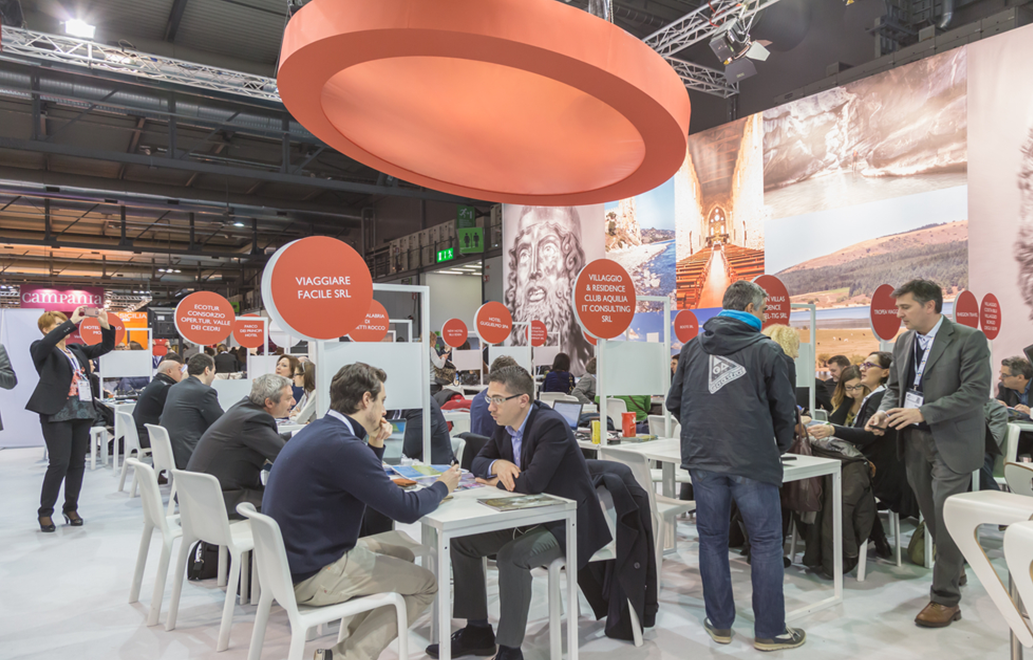Make your attendees remember with help from event production charlotte
Just How Event Production Works: A Comprehensive Check Out the Process
Event production is a complex and organized procedure that requires cautious planning and implementation. It begins with developing clear goals and recognizing the target audience. Each step, from budgeting to venue option, plays an important role in making sure success. As the process unravels, numerous elements must straighten flawlessly. Yet, the nuances of this intricate operation commonly go undetected. What are the key phases that add to an unforgettable event?

The Preliminary Planning Stage
When starting on event production, mindful preparation is vital to assure a successful end result. The first drawing board serves as the structure for all succeeding initiatives. Throughout this phase, event producers must specify the event's objective and purposes clearly. Identifying the target market aids customize the experience and messaging, ensuring importance and engagement.Producers should additionally take into consideration the event style, whether it be in-person, digital, or hybrid, as this will certainly affect numerous logistical components. Picking an appropriate day and place is crucial, as it impacts accessibility and availability.Furthermore, setting up a trusted team is essential for dividing duties and enhancing communication. Establishing a timeline with turning points assurances all tasks are finished on time. This phase entails complete research study, including determining prospective obstacles and devising methods to mitigate risks. Eventually, a well-structured preliminary planning phase establishes the tone for a successful event production journey.

Budgeting and Source Allowance
In event production, reliable budgeting and resource allowance are crucial for success - event production charlotte. Developing financial specifications establishes the structure for all succeeding choices, while resource distribution methods guarantee that every element of the event is properly supported. Together, these elements aid maintain control over expenses and enhance making use of available resources
Developing Financial Parameters
Developing financial specifications is important to the success of any type of event production, as it sets the foundation for effective budgeting and resource allotment. This procedure begins with specifying the total budget, which incorporates all elements of the event, including venue costs, food catering, and advertising. By determining readily available funds, event organizers can focus on expenses and allot resources as necessary. In enhancement, it is necessary to perform thorough marketing research to prepare for potential expenses and recognize financing sources, such as sponsorships or ticket sales. Establishing clear monetary specifications likewise help in risk monitoring, allowing coordinators to reserve contingency funds for unforeseen expenses. Inevitably, a well-defined budget plan serves as a roadmap, directing the event production group towards achieving their goals while maintaining monetary control.
Source Circulation Methods
Reliable resource circulation approaches are vital for making best use of the effect of an occasion while adhering to budget plan restraints. Effective event production calls for a meticulous method to budgeting and source allowance. Coordinators must focus on important aspects such as venue, food catering, and modern technology, making sure that funds are alloted to areas that enhance attendee experience. A thorough budget plan ought to describe anticipated expenditures and identify locations for possible cost savings, such as working out with suppliers or discovering sponsorship possibilities. Additionally, tracking expenditures throughout the planning process helps avoid overspending. By utilizing critical resource distribution, event producers can deliver a memorable experience while keeping fiscal duty, ultimately adding to the overall success of the event.
Place Option and Logistics
Picking the ideal place is vital to the success of any kind of event, as it sets the stage for the general experience. Location selection entails assessing different elements, including capability, accessibility, and location. Organizers should take into consideration the target audience and the nature of the event, making sure the location lines up with the event's goals.Logistics play a considerable duty in this process, entailing setups for seating, audiovisual devices, and providing solutions. A well-chosen location should promote smooth flow for participants and personnel, enhancing engagement.Additionally, reviewing potential venues for services like vehicle parking, toilets, and emergency situation exits is necessary for security and comfort. The timeline for securing the location is also crucial, as popular areas may schedule promptly - event production charlotte. Extensive preparation and prompt execution can inevitably contribute to a smooth event experience, making location selection and logistics fundamental components of successful event production.
Innovative Principle Advancement
While the venue sets the physical phase, creative idea growth forms the event's identity and story. This process begins with identifying the event's function and target audience, enabling event producers to create a compelling theme that reverberates with participants. Conceptualizing sessions often consist of varied point of views, promoting innovative concepts that line up with the event's goals.Once a theme is established, aesthetic elements such as shade combinations, signage, and design are created to enhance the general ambience. Storytelling techniques might likewise be incorporated to create an engaging trip for individuals, assuring an unforgettable experience. Furthermore, considerations concerning home entertainment, activities, and interactive components are lined up with the selected concept, strengthening the theme throughout the event.Ultimately, efficient innovative idea growth warranties that every element of the event works cohesively, leaving an enduring perception on guests and fulfilling the event's objectives. This foundational work prepares for succeeding preparation and execution stages.
Collaborating With Suppliers and Distributors
Successful event production depends upon efficient collaboration with suppliers and distributors. Picking trusted partners, discussing contracts efficiently, and making certain prompt deliveries are critical actions in this process. Each of these elements contributes greatly to the general success and smooth execution of an occasion.
Choosing Reliable Partners
How can event organizers assure a smooth production experience? Picking reliable companions is crucial in accomplishing this goal. Event planners need to conduct thorough research study to identify vendors and suppliers with a proven performance history of quality. This includes examining recommendations, reviewing portfolios, and assessing client responses. Organizers need to prioritize partners who show professionalism and reliability, prompt interaction, and a desire to team up. Structure strong relationships cultivates trust fund and allows fast analytic during the event. Furthermore, it is helpful to pick local suppliers who understand the place and regional logistics. Eventually, an effective event depends upon the harmony between organizers and their partners, making certain that every element of production runs efficiently and efficiently.
Discussing Agreements Effectively
Reliable negotiation of contracts is an essential action in the partnership in between event planners and their suppliers and vendors. This process includes clear communication of assumptions, deliverables, and timelines. Planners must carry out extensive study on market prices and market requirements to establish a baseline for settlements. It is necessary to create a joint environment, motivating open dialogue about terms, prices, and prospective contingencies. Organizers ought to also focus on understanding the supplier's capacities and limitations to straighten their demands effectively. Flexibility can lead to equally advantageous arrangements, fostering long-lasting partnerships. Crafting distinct contracts that include specific performance metrics can aid assure liability, eventually causing successful event implementation and satisfaction for all events involved.
Ensuring Timely Deliveries
Timely shipments are essential for the smooth execution of any event, needing persistent collaboration in between coordinators and their suppliers and suppliers. Efficient communication is vital, as it helps establish clear assumptions concerning delivery timetables, amounts, and certain needs. Coordinators usually develop in-depth timelines to lay out vital turning points, ensuring all parties remain lined up throughout the process. Regular check-ins with vendors can aid determine prospective delays early, permitting proactive solutions. In addition, developing solid connections with trusted vendors fosters trust fund and accountability, which can cause much better solution and prioritization. By focusing on these joint efforts, coordinators can decrease disturbances, thus enhancing the total effectiveness of event production and guaranteeing that all needed products and solutions get here as prepared.
Advertising and Promo Techniques
While arranging an occasion, the success of marketing and promo approaches can substantially affect participation and engagement. Effective methods usually consist of a combination of electronic marketing, conventional marketing, and grassroots outreach. Using social media platforms permits real-time communication and targeted click for more info marketing, getting to certain demographics effectively. Email advertising and marketing projects can better engage prospective attendees with individualized web content and reminders.Collaborations with influencers or market leaders can also boost reliability and broaden reach. Creating engaging content, such as video clips or blog sites, assists to generate buzz and endure interest leading up to the event. Additionally, leveraging early-bird discounts and special perks can incentivize ticket purchases.Promoting through conventional channels, such as posters or neighborhood media, remains pertinent, especially in community-focused occasions. An extensive technique that integrates multiple methods guarantees optimum presence and engagement, inevitably adding to the event's success and the development of a remarkable experience for attendees.
On-Site Implementation and Management
On-site implementation and management are crucial parts that determine the overall success of an event. Effective coordination throughout the event ensures that all components line up with the intended schedule. Event managers look after logistics, consisting of vendor coordination, equipment setup, and visitor solutions. Monitoring timelines and attending to any type of unanticipated problems are essential for preserving a seamless experience.The personnel plays a significant function, as experienced employees are liable for different tasks such as enrollment, information dissemination, and technological assistance. Interaction amongst team members is necessary; it fosters a collaborative atmosphere and enables quick resolution of challenges.Additionally, security procedures should be abided by, guarding the well-being of all participants. Post-event assessments are also part Find Out More of on-site management, giving insights for future renovations. By focusing on these aspects, event producers can produce unforgettable experiences that fulfill or surpass participant assumptions while accomplishing the event's purposes.
Regularly Asked Concerns
How Do I Pick the Right Event Style?
Selecting the right event style involves taking into consideration the target market, event function, and location. Researching present patterns and collecting input from stakeholders can additionally motivate innovative ideas that reverberate and create a memorable experience.

What Are Common Mistakes in Event Production?
Common errors in event production often consist of insufficient planning, bad interaction amongst employee, budget plan mismanagement, ignoring to consider the target market's needs, and falling short to conduct a detailed post-event examination for future renovations.
How Can I Determine Event Success?
To determine event success, one can assess attendee contentment, engagement levels, spending plan adherence, and post-event comments. Key performance indications, such as ticket sales and social media sites communications, additionally offer important insights into general effectiveness.
What Should I Do if It Moistens the Event Day?
In case of rain on the day, the organizer must apply contingency plans, such as protecting outdoors tents or moving activities inside your home. Interaction with guests about modifications is necessary to guarantee a smooth experience regardless of climate difficulties.
Just How Can I Make Sure Guest Engagement Throughout the Event?
